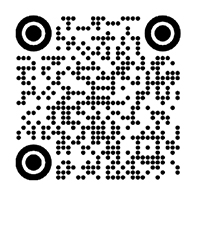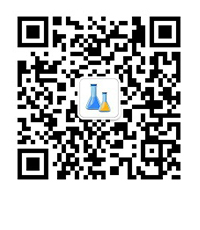Search Product
Structure Search
Search
Advantage Products
Location: Industrial Info
FDA reject the request of tag extension for diabetes drug Januvia and its combination
2017-04-13
来源:转载自第三方
13 April 2017
Recently, the Merck Pharmaceutical received the formal rejection from FDA on its supplement the new drug application (sNDA) about Januvia (Sitagliptin) and Janumet (sitagliptin/metformin hydrochloride), Janumet XR (sitagliptin/metformin sustained release tablets). In the supplemental application, Merck Pharmaceutical plans to add the cardiovascular data of the TECOS study into the drug specification.
Januvia is the world's first listed DPP-4 inhibitor hypoglycemic agents. Since approval in the United States in November 2006, it has been approved in more than 80 countries around the world. The indications of Januvia, Janumet and Janumet XR is to improve the blood glucose levels of adults with type 2 diabetes assist the diet and exercise, they do not apply to patients with type 1 diabetes and diabetic ketoacidosis. But they also did not have patients with pancreatitis in the study, whether it will increase the symptoms of pancreatitis is still unknown.
DPP-4 is an enzyme that breaks down glucagon-like peptide-1 (GLP-1). GLP-1 is secreted by intestinal cells, which can stimulate insulin, inhibit glycogen, inhibit gastric emptying and allow islets cell rebirth way to lower blood sugar. The DPP-4 inhibitor inhibits the degradation of GLP-1 by inactivating DPP-4. In addition to sitagliptin, drugs approved include Vildagliptin (intermediates 3-amino-1-adamantanol), Saxagliptin, Linagliptin, Alogliptin and so on. At present, DPP-4 inhibitors have made some progress, especially with other drugs, such as metformin, sulfonylureas, etc., the effect is relatively stable, but there still are some risks.
Warning of Januvia and Janumet, Janumet XR:
Januvia® (Sitagliptin)
(1) Januvia is prohibited to patients who have hypersensitivity to sitagliptin because of the post-marketing report shows that the drug will cause certain hypersensitivity reactions that tend to occur in the first three months of treatment (2) Januvia also appeared report of acute pancreatitis, including the emergence of fatal and non-fatal bleeding or necrotizing pancreatitis symptoms; (3) Januvia will increase the incidence of hypoglycemia when combination with sulfonylureas or insulin, so the dose of sulfonylurea drugs or insulin should be reduced; (4) Report shows that Januvia will increase the damage to renal function, including acute renal failure, most patients are due to the use of the wrong dose. Therefore, before taking Januvia, renal function tests are recommended, as well as the subsequent renal function monitoring. Severe renal insufficiency patients and hemodialysis or peritoneal dialysis in patients with end-stage renal disease need to adjust the dose; (5) In the clinical study, patients with Januvia monotherapy or combination therapy, were more likely to have adverse reactions to upper respiratory tract infections, nasopharyngitis and headaches, compared with the placebo group.
Janumet® (sitagliptin/metformin hydrochloride), Janumet XR® (sitagliptin/metformin sustained release tablets)
(1) Lactic acidosis. Risk factors for lactic acidosis include renal impairment, the use of specific drugs, over 65 years of age, experienced radiation therapy, acute congestive heart failure, liver injury or excessive alcohol intake. It can cause death, body temperature drop, hypotension, bradycardia, the symptoms often appear without signs, accompanied by symptoms of physical discomfort, muscle pain, respiratory depression, lethargy, abdominal pain; (2) Hypoglycemia. Compared with placebo, it will increase the incidence of hypoglycemia when sitagliptin combined with sulfonylurea drugs or insulin, so sulfonylurea drugs or insulin dose should be reduced when combination.
There has been a lot of controversy over the effects of the DPP-4 inhibitor on the cardiovascular system. In a Phase IV safety trial called TECOS, Januvia showed no increase in the risk of cardiovascular events compared with placebo and did not increase the risk of heart failure at the secondary end point. Januvia's "no heart safety problem" is very valuable, so Merck has been hoping to add it to the label, but the FDA has rejected the request for various reasons. Merck said that after receiving the full reply letter, they has begun to review and will communicate with FDA for the next step.
Related Links: 3-Amino-1-adamantanol
1,1-Dimethylbiguanide hydrochloride
1,1-Dimethylbiguanide hydrochloride
Edited by the Editorial Office of Suzhou Yacoo Science Co., Ltd.
如果涉及转载授权,请联系我们。












